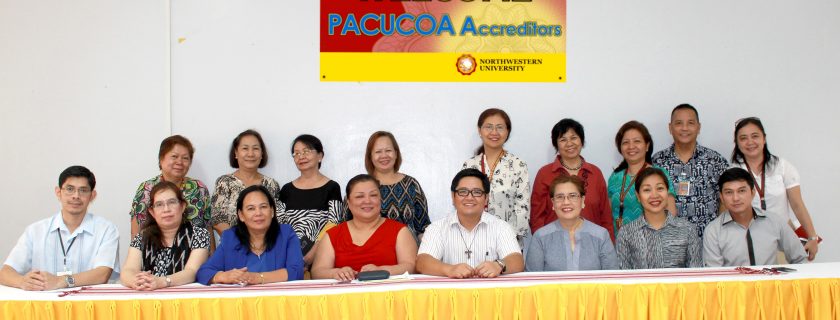Level IV Accredited Status for NWU’s Master of Arts in Education Program
NWU’s Master of Arts in Education Program achieved Level IV Reaccreditation Status according to the standards set by PACUCOA (Philippine Association of Colleges and Universities-Commission on Accreditation). NWU is one of only two institutions in the country granted this level for the Master of Arts in Education Program by the CHED-recognized accrediting body.
Level IV Accredited Status refers to “Institutions/programs which are highly respected for having maintained very high educational standards and with prestige and quality comparable to similar programs in excellent foreign institutions/programs” (pacucoa.ph). It is the second to the highest level of accreditation in the PACUCOA classification.
NWU began its efforts in accreditation in 1991, allowing its programs to be subjected to rigorous scrutiny by accreditors coming from established higher education institutions across the country. It has proven beneficial, with the programs attaining standards that ensure quality education. Five programs have garnered Level III Accredited Status, namely: Liberal Arts (which includes AB Communication, AB Political Science and AB English), BS Business Administration, Bachelor in Secondary Education, Bachelor in Elementary Education, and, most recently, BS Criminology.


PACUCOA’s website describes Level III Reaccredited Status as “Institutions/programs which have been re-accredited and which have met the additional criteria set by FAAP for this level.” FAAP is the Federation of Accrediting Agencies of the Philippines.
Programs that were accredited with Level II Status are the following:
- BS Mechanical Engineering
- Master of Public Administration
- BS Hotel and Restaurant Management
- BS Nursing
- BS Computer Engineering
“The results of accreditation to [accredited] schools are encouraging,” says the PACUCOA website in its FAQs. “If you do a survey of these institutions, roughly about ninety-five percent of these schools are experiencing the expected outcomes of this endeavor, which can be seen in indicators such as significant improvement in the quality of facilities, library, laboratories, services and teachers, increase in the percentage of board passers, success in employment and higher level of competence of graduates, empowerment of administrators, faculty, non-teaching personnel and students.”
PACUCOA cites that only about 20% of educational institutions have undergone accreditation.






